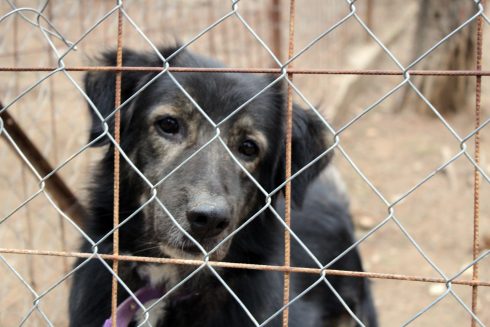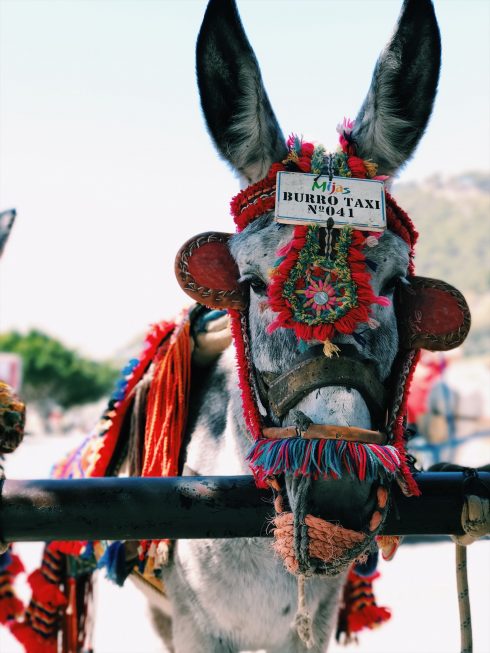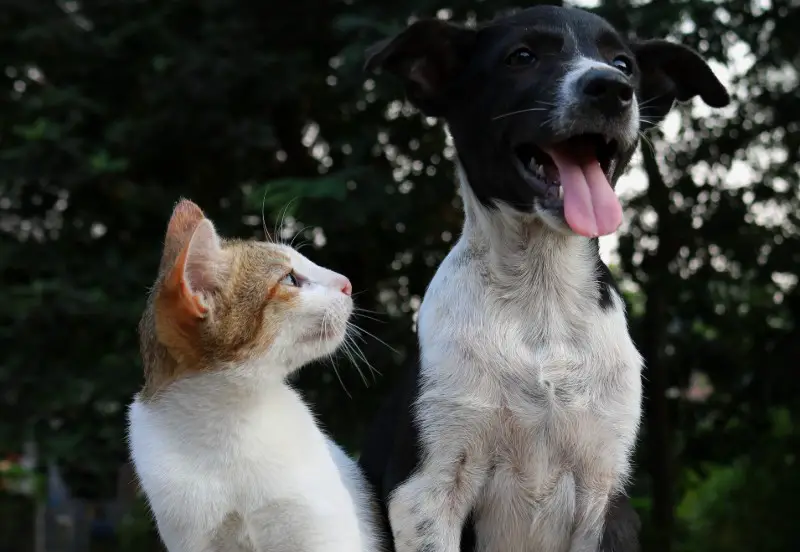THE “animal sentience” law considers pets to have feelings and be more like children than objects in the eyes of the courts. So, what do the public and animal shelters make of these laws? Will they do any good?
Some incoming rules, not yet in Spain’s statute but first reported by The Olive Press in October, will involve pet DNI cards, online training courses for new owners, no adopting animals that aren’t microchipped, and only registered breeders to reproduce animals.
It’s already law that owners can only have five pets, or they must obtain a kennel register, although this won’t be applied retrospectively.
As for mistreatment, it’s illegal to leave dogs alone for more than 24 hours, confine them, restrict their movement, mutilate them for aesthetic reasons (such as cropping ears and tails), use pets for begging, and make them do excessive work. You cannot dump them, release them into the “natural environment”, or put down healthy animals. The strangest rule is that you cannot eat your pet!
A long history of abuse without consequences
On paper, the laws make sense, as Spain has the highest incidence of abandoned dogs in the EU, with more than 180,000 dogs rescued in 2019 (source: Affinity Foundation, 2020). We’ve all heard tales of puppies and kittens thrown into bins.

Linda Raine of Valle Verde animal rescue in Alumnecar – who welcomes castration and no new litters – says: “There has always been adequate legislation. The problem is the mentality behind enforcement.”
The Olive Press has heard anecdotal reports of Seprona being reluctant to prosecute negligent owners, even repeat offenders, and of people turning a blind eye.
The author knows of two dogs that were starved to death by a lady with mental health issues. Despite the pups crying with hunger, nobody intervened. The police gave up when she didn’t open the door, and the pups died. Would that change because of the new laws?
Liesl Cavender, an animal rescuer, says: “Only the law-abiding pet owners will follow the rules. For years, you have needed to have dogs chipped, but the dodgy owners don’t want to spend money on chipping the dog, vets’ fees or even food. They are not suddenly going to stop treating their animals badly.”
The problem of non-pets
Many people told the Olive Press they worry about hunting dogs, where there’s a tradition of culling them after two years of loyal service.
This is one area where there’s a government information video circulating about new requirements.
Tonya, a resident of Orgiva, has rescued three abandoned greyhounds or galgos as they are known in Spanish. She says: “Galgueros dig out the chip before they dump the dog and leave it with a wound. I doubt this practice will change. They sometimes break both front legs so the dogs cannot follow them.”

Says Cavender: “This is the dark side of Spain. How can this place be a tourist destination, and, at the same time, the hunters throw Podencos over cliffs or hang them, shoot them, starve them to death or – if the dogs are ‘lucky’ – they will just be abandoned.”
Freya Rogers Moalim, who rescues animals in La Alpujarra, says: “I want to know if all hunters are properly registered and are their premises routinely checked.”
A hunter from the Alpujarra, who disapproves of dog abuse, told the Olive Press: “I believe that dogs are animals that have always helped man in his work, work, hunting, guarding farms and homes, etc. I think that dogs should be in their place and not humanise them but, of course, not mistreat them either. They must have good facilities and their correct feeding, cleaning, and deworming. However, I don’t agree with the animal bill forcing us to castrate animals.”
Hidden abuse in rural areas
It’s obvious that the laws will be difficult to enforce in rural areas – except “releasing them into the natural environment”, which could penalise owners whose dogs have jumped the fence!
In the countryside, dogs locked in tiny sheds or chained all day won’t be seen. A group of Medio Ambiente workers showed the Olive Press a photo of a dog that had been burned horrifically in a wildfire because it was chained and and could not escape. They risked their safety to save it – but not before its tongue had burned off.
And will mountain people stop breeding their working dogs and passing them around friends? If it’s suddenly deemed illegal, will they drown even more puppies?
We spoke to a shepherd and his wife who said they might register dogs in multiple names. They hadn’t heard about the new rules, suggesting that information isn’t circulating efficiently.

Lisa Burbach, an animal rescuer from Orgiva, says: “If you only knew how many poor results of reproduction experiments by shepherds I have already rescued, not to mention the problem of hereditary diseases. Breeding healthy dogs needs expertise, not just locking dogs together and throwing the result away if you don’t like it or the litter is bigger than you want.”
Linda Raine says: “It needs a sustained and committed educational programme to run alongside the laws, and that includes the rural areas and villages.”
Urban areas and feral cats
Enforcement in towns is also reportedly patchy.
Sam Willis, a dog owner in Seville, says: “I live on an urbanisation and have only seen the police here once, and there are people who leave dogs for days on end with just water and biscuits, and with other dogs wandering around, seemingly without owners.”

Deb Groom, who fosters cats, also raises concerns: “I think around 90% of Spain’s population live in coastal areas or cities and, in those areas, people will be forced to care for their animals better because they will have penalties. But will this help the management of feral cats? While some villages are good, others just leave them to suffer. They are in a shocking state with some horrible ailments.”
There’s also the issue of working donkeys. Steve Desson was involved in donkey welfare and a group working with Mijas Council, whose town “donkey taxis” are controversial. He says: “With donkeys that are abused, I don’t think this law will have any significant impact unless guidance and support are provided. People who abuse frequently do so through ignorance of how to treat the animal. The culture needs to change, not just the law.”

Another controversial rule for towns says that beggars cannot beg with their dog. This will stop people borrowing pets for this purpose, but what about homeless people who are dog owners?
Sheree Burgess of Orgiva says: “So, beggars can’t have their dogs with them or leave them tied up at whatever they call home. This is handy if you don’t like someone and need an excuse to get at them or fine them. Another Draconian law.”
The need for education
Olive Press spoke to the Durcan vet in Orgiva, who agrees that education about animal welfare is needed and thinks this is happening “very slowly”. She adds that people should not have pets if they can’t pay to maintain them. She says: “Some municipalities, such as Lanjaron, offer mass castrations but it’s not done in all the towns. Whether the law will help animals depends how it will be applied. The main impact is we see them as beings with feelings – more like children. Would you keep your child chained up or put it on a terrace all day?”
To improve the lives of animals, we clearly need a public education programme like Spain’s domestic violence campaign and its zero-tolerance approach – not just online courses for the tech-savvy new owner. We cannot expect a culture going back centuries to change overnight.
Meanwhile, we can wait to see if the new laws have a positive effect, no effect, or increase the number of dead or abandoned animals because people don’t have breeding permits and fear being denounced.
READ ALSO:
- ANALYSIS: The beastly dilemma of animal rights in Spain
- Animals in Spain awarded new legal status as ‘sentient beings’ rather than things
- EXPLAINER: What we know about Spain’s plan to introduce national ID for pets
- What you need to know about Spain’s animal welfare bill
Click here to read more News from The Olive Press.








